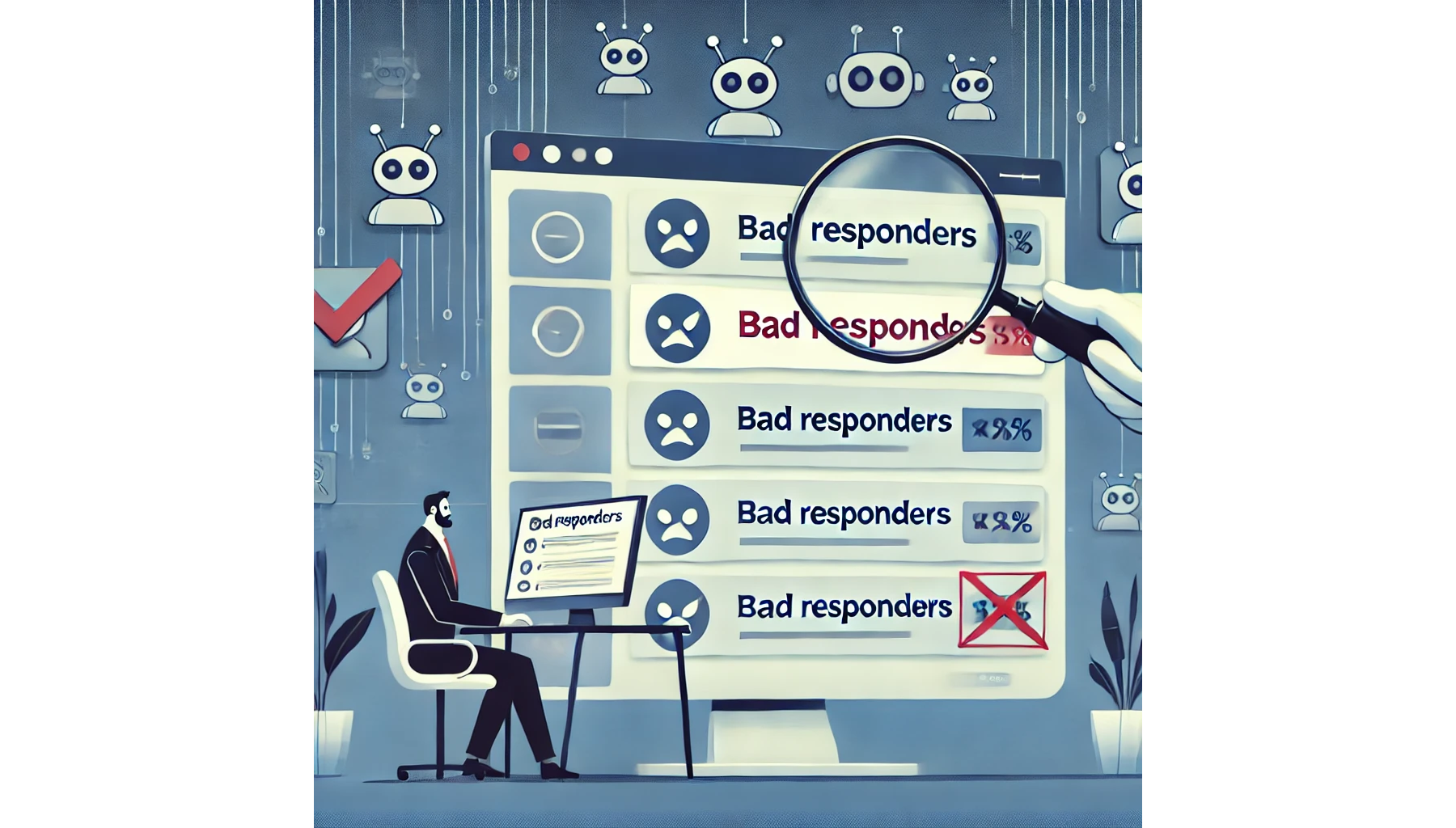The Problem: Why Spammers Ruin Survey Data
When conducting survey research, the quality of the data you collect determines the reliability of your insights. But what happens when spammers—people who participate in surveys with no intention of providing thoughtful answers—pollute the data? The consequences can be severe.
Spammers often rush through surveys, providing random or nonsensical answers to get paid quickly. Some use automated bots, while others copy and paste the same response repeatedly or click through as fast as they can. In studies that require open-ended responses, you might see meaningless text, AI-generated answers, answers that don’t match the question being asked, or even just gibberish.
The impact of spammers on survey results can be disastrous. Bad data can:
- Skew results – Causing you to draw the wrong conclusions from your research. .
- Waste resources – Forcing you to spend extra time cleaning up responses.
- Lead to poor decision-making – If you rely on bad data, it may lead you to make costly mistakes.
This is why Positly prioritizes high-quality responses. Our proprietary QualityGuard© system helps to ensure that researchers get more reliable data.
How Positly Prevents Spammers
At Positly, we use a multi-layered approach to help detect and block spammers before they can impact your study. Here’s how we do it:
- Advanced Bot and AI Detection
With the rise of AI tools, fake responses are more sophisticated than ever. Our system detects and blocks AI-generated responses, helping to ensure that only real human participants take part in studies.
- English Language Proficiency Checks
For English Activity, participants must demonstrate a basic level of English proficiency. If a respondent struggles to understand the questions, their answers may be low-quality—even if they’re not outright spammers.
- Attention and Quality Checks
Survey takers who answer too quickly, fail attention-check questions, or provide inconsistent responses are flagged and removed.
- Duplicate Prevention
We use IP address tracking, and unique participant identifiers to prevent duplicate entries. This helps to ensure that a single person (or bot) can’t submit multiple responses.
- Proactive Monitoring
Our internal data analysis system continuously scans for unusual response patterns, allowing us to detect and block suspicious activity before it becomes a problem.
- Geolocation Tracking
IP-based geolocation tracking helps to ensure that participants match the study’s target region.
The Result: Reliable, Actionable Insights
By implementing these security measures, Positly helps to ensure that you get real, high-quality responses from engaged participants. This means cleaner data, better insights, and more confidence in decision-making.
Bad actors will always try to game the system, but with our constantly evolving QualityGuard© system, Positly stays ahead of the curve—so you can focus on what really matters: conducting great research.



